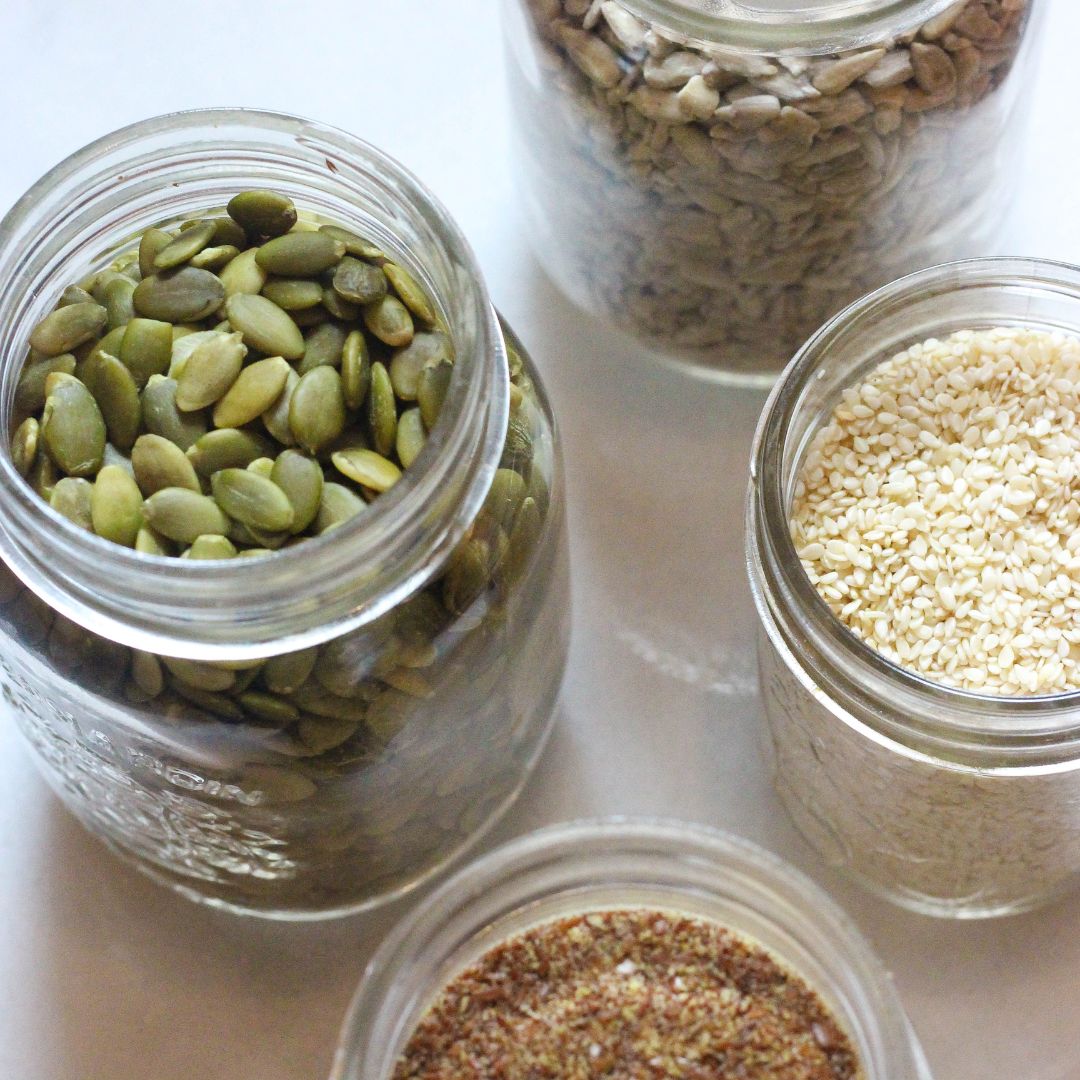
Eat for Your Cycle
A woman’s nutritional needs shift throughout her cycle – and syncing your food to your hormones can be a great way to support mood, energy, and overall wellbeing. Even if you’re irregular or not currently menstruating, you can still follow this rhythm by tracking the lunar cycle as a guide.
Here’s a simplified overview of how to eat to support each phase:
Follicular phase (around 7–10 days after your period ends)
Hormone levels are at their lowest, which makes this a great time to focus on fresh, nutrient-rich foods to build energy and support hormone production.
Go for:
Ovulation (3–4 days mid-cycle)
This is when oestrogen peaks and energy levels are often at their highest. Your body thrives on lighter, vibrant foods rich in antioxidants.
Include:
Luteal phase (10–14 days before your period)
This is when PMS symptoms can kick in – bloating, cravings, low mood – you know the drill.
Prioritise:
Menstrual phase (3–7 days)
Time to be kind to yourself. Your body is shedding and renewing, so focus on deeply nourishing foods that replenish and hydrate.
Think:
Easy tips for balancing hormones:
Seed cycling
Incorporate specific seeds into your daily diet based on your menstrual cycle phase. This supports natural hormone balance by providing targeted nutrients. Add 1 tbsp of each seed to 1 daily meal
Day 1-14
If you’re in the first half of your cycle (Day 1-14 where Day 1 is the first day of your period), add (1 tbsp each) flaxseed and pumpkin seeds to your meals.
Day 15-29
If you’re in the second half of your cycle (Day 15-28), add (1 tbsp each) sunflower and sesame seeds. to your meals to improvs hormonal disturbance in women and promote a healthy life.
Prioritise gut health
A healthy gut microbiome plays a vital role in hormone metabolism and detoxification. Probiotic-rich foods like yogurt, kefir, kimchi, and kombucha help maintain gut balance, while prebiotics in fibre-rich vegetables and fruits feed beneficial bacteria.
Enjoy healthy fats
Healthy fats like avocado, olive oil, nuts, seeds, and oily fish provide essential building blocks for hormones and reduce inflammation. Include them regularly in your diet, choosing cold-pressed oils and unroasted nuts for optimal nutrient retention.
Minimise inflammatory foods
Refined carbohydrates, processed foods, sugar, and excessive alcohol can trigger inflammation, disrupting hormone balance. Opt for whole grains, legumes, fruit, vegetables, and lean protein sources instead.
Support your liver
The liver plays a key role in hormone breakdown and elimination. Foods like cruciferous vegetables (broccoli, Brussels sprouts), beetroot, garlic, and dandelion greens support liver detoxification, promoting efficient hormone processing.
And if you’re struggling with any specific hormone conditions or symptoms, why not book in a free call with me? We can talk through, and I can give you some simple tips to take away. Just book here.
![]()
Please get in touch and find out more - I offer a free 30-minute exploratory call.